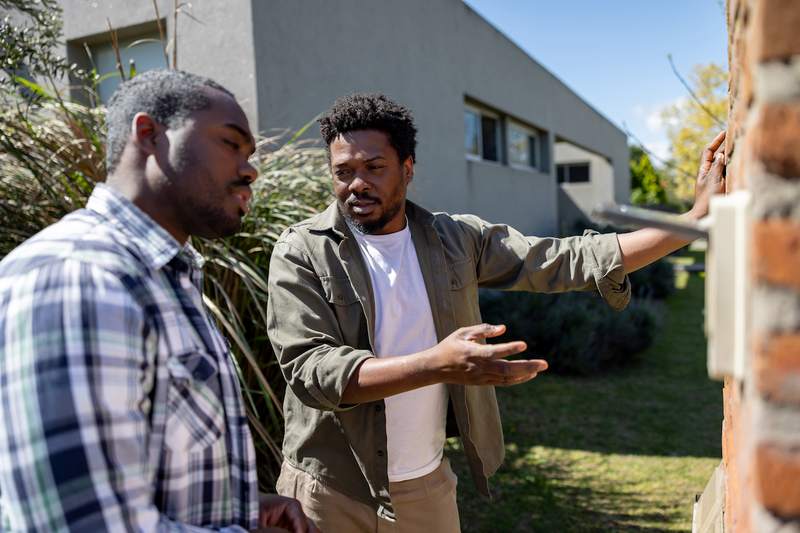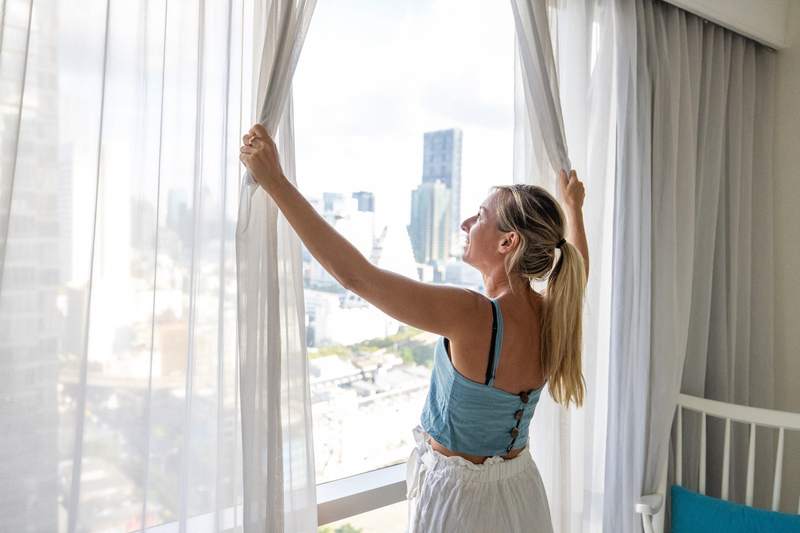Getting the best interest rate is one of the major challenges of buying a home, because rates are always changing. That makes it difficult to know whether the interest rate you’re offered when you apply for a mortgage will be the same at closing.
To ease such worries, many lenders let buyers pay a fee to lock in their interest rate for a set period. This allows buyers to know more precisely how much they’re paying for their home, and protects them if rates increase.
The question, “Should I lock in my mortgage rate today?” doesn’t have a simple yes-or-no answer. That’s why it’s important to understand how locking in your interest rate works, why you might want to do so, and when to lock in mortgage rates:
- What Is a Mortgage Rate Lock?
- How a Mortgage Rate Lock Works
- Protect Yourself With a Mortgage Rate Float-Down Option
- What To Do If Interest Rates Go Down
- Mortgage Rate Lock FAQ
- The Bottom Line on Locking In a Mortgage Rate
What Is a Mortgage Rate Lock?
A mortgage rate lock lets you freeze the interest rate that a mortgage lender offers to you for a specific period of time. Regardless of how market rates change during the lock period, you can close on the mortgage at the locked interest rate.
“By locking your rate, you have the comfort of knowing exactly what rate you’ll have,” says Bill Gassett, a Realtor based in Hopkinton, Massachusetts. “There will be no surprises if the rate suddenly jumps in the upcoming weeks, which will surely cause some stress.”
Without a rate lock, an increase in your interest rate could make the home you’ve bid on more expensive. In the worst case, you might not be able to afford the home anymore, and may need to back out of the purchase — possibly forfeiting your earnest money.
How a Mortgage Rate Lock Works
If you’re shopping for a home, you likely are working with a lender already. You may have a preapproval letter to help you set your budget, and to make any offers you submit more competitive.
Your lender might lock in a mortgage rate for a fee as a way to protect you from any interest rates increases while you shop for a home. You usually can lock in a rate for 30, 45, or 60 days.
Once it’s locked, the rate can adjust only if there are major changes to your mortgage application. Reasons why a locked rate may adjust include:
- Changes to the type of mortgage, loan amount, term, or down payment.
- The home appraisal comes back higher or lower than expected.
- Your credit score or income changes.
How long does a rate lock last?
You can negotiate with the lender on how long your interest rate will be locked. Some lenders offer rate locks as short as a week, while others let them last for up to 120 days.
It’s important to consider the time frame carefully, so that your rate lock stays in effect through closing. Even if you get this right, it can add to an already stressful situation.
“If you lock for 60 days, then you need to get your offer accepted in 30 days, and close escrow in 30 days,” says Steve Hill, a mortgage broker with SBC Lending based in Fullerton, California. “As anyone who is out there shopping for homes knows, it’s extremely difficult to get your offer accepted in today’s market, so you’re adding time-sensitive pressure to the already-stressful homebuying process.”
If you’re still shopping and your rate lock is about to expire, talk to your lender about extending your rate lock period. This likely will come with a fee, but it can be worth paying if you’ve locked in a significantly lower rate.
Mortgage rate lock fees and costs
Each lender sets its own policies and fees for locking in a rate.
A short-term rate lock of 30 to 60 days typically costs between 0.25% and 0.5% of the loan amount. For a $250,000 mortgage, that means a rate lock will cost $625 to $1,250. Longer-term rate locks and extending a locked rate can incur higher fees.
Other lenders charge a flat fee, paid either upfront or rolled into the closing costs.
Protect Yourself With a Mortgage Rate Float-Down Option
When locking your interest rate, you can ask your lender for a mortgage rate float-down provision, which reduces your locked-in interest rate if market rates decrease during your rate lock period.
Often, the decrease is limited. There also is usually a higher fee for the rate lock if you want to add a float-down option, and you may need to request the rate change because it doesn’t always happen automatically.
What To Do If Interest Rates Go Down
If interest rates go down after you’ve locked in your rate, there are a few things you can do:
- Switch lenders. You’ll have to go through underwriting again, but you’ll receive a new loan offer and rate afterward.
- Wait for the rate lock to expire. After that, you can negotiate a new rate with your lender. However, there’s a risk of missing out on good homes while you wait.
- Negotiate with the lender. Work with your lender to see if you can agree on a way to lower your interest rate.
Mortgage Rate Lock FAQ
These are the answers to some frequently asked questions about mortgage rate locks.
Each mortgage lender sets its own rules when it comes to locking in rates. Some will let you lock in very early in the process, while others only let you lock in once you’ve been fully approved for a loan.
You’re free to work with a different lender even after locking in a mortgage rate. But if you paid a rate lock fee, you won’t get that money back.
You can cancel a rate lock, but you’ll need to restart the mortgage application process. This can be worthwhile if rates have dropped significantly, but it may delay your closing date.
The Bottom Line on Locking In a Mortgage Rate
Locking in your mortgage rate offers certainty and peace of mind. Knowing the interest rate on your loan makes it easier to calculate your monthly payment and to plan for it in your budget. The drawback is that rate locks can be expensive, and could commit you to paying a higher rate if market rates drop before you close. You need to consider all these factors when deciding whether to lock in your mortgage rate.






